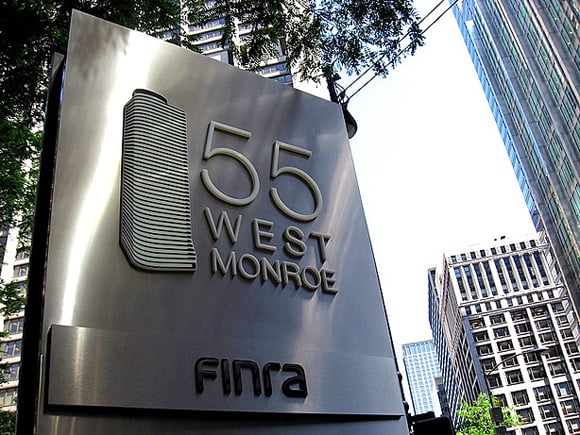Making it to the top of The Goldman Sachs Group Inc. apparently means that you never have to take another broker exam.
The Financial Industry Regulatory Authority Inc. gave former MF Global Inc. chief executive Jon Corzine a waiver on Series 24 and Series 7 exams when he returned to the financial sector to head the firm in March 2010. The agency did, however, make Mr. Corzine take a Limited Futures, or Series 32, exam.
Before MF Global, Mr. Corzine last worked on Wall Street in May 1999, when he served as chairman of Goldman Sachs & Co. He then took an 11-year break from the industry and was elected to a U.S. Senate seat in New Jersey in 2000, and then was elected governor in 2005.
After he was defeated for re-election in 2009 by current New Jersey Gov. Chris Christie, Mr. Corzine took a couple months off before joining MF Global.
Forbes.com first
reported last week that Mr. Corzine passed the Series 7 exam in 1975 and the Series 24 exam in 1982 but had not sat for either one prior to taking the helm of MF Global. Finra says on its website that investment professionals must retake their exams after being out of the business for more than two years, the story notes.
Finra spokeswoman Nancy Condon confirmed that Finra gave Mr. Corzine a waiver. She referred
InvestmentNews to the Finra website for an explanation for the decision.
Waivers are granted for experience, educational achievement and regulatory experience. It would seem that Mr. Corzine qualified under the experience rubric, given his rise to the top of one of Wall Street's most powerful firms.
“These waiver requests are based on the applicant's experience in the securities industry and/or in related investment fields such as investment banking, securities trading on behalf of a financial institution, securities research, portfolio management, investment advisory services, or securities activities in a foreign broker/dealer,” the Finra website states. “Certain law, accounting, and consulting practices related to the securities acts and regulations also may provide an appropriate basis for waiving a qualification examination.”
Granting waivers is a typical happening, according to a former state regulator.
“It's a pretty standard practice,” said Steven Thomas, director of Lexington Compliance and former chief compliance examiner in the South Dakota Securities Division. “In a lot of cases it's justified. In [Corzine's] case, there would be no justification on why he should get a waiver.”
While waivers are common for individuals with industry, regulatory and legal experience, Mr. Thomas said that Mr. Corzine's government service, albeit as the head of the New Jersey government, didn't expose him to the rapidly changing regulatory environment in the investment industry.
Other MF Global officials, especially those in compliance, would have had up-to-date Series 24 and Series 7 credentials. Besides, Mr. Corzine's waiver probably had no effect on MF Global's collapse, which was caused by vast overleverage in European sovereign debt.
“I don't think he had any daily transactional authority,” Mr. Thomas said. “I don't think he was even aware of [the debt problem] until things started coming apart.”







